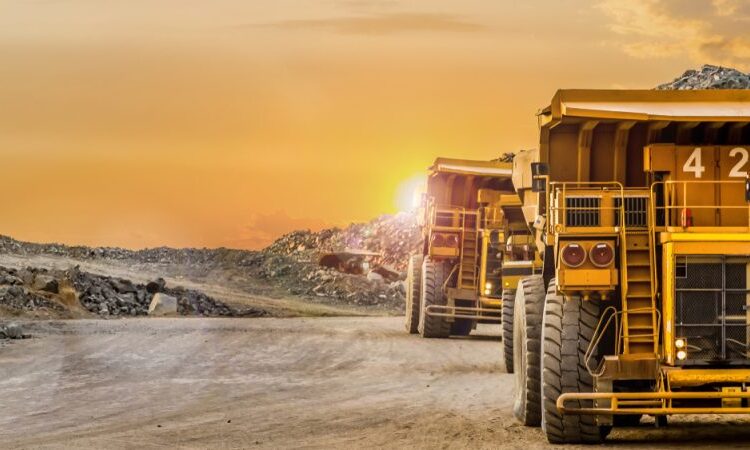
The demand for critical raw materials has never been greater. Kazakhstan, a nation rich in mineral resources, aims to increasingly attract investment and create value-added solutions within its borders.
Rare earth elements are the backbone of modern technology, “These elements are called critical metals because they are essential for electronics, battery production, and aerospace engineering, among other applications,” said Kazakhstan’s Minister of Science and Higher Education Sayasat Nurbek.
Kazakhstan is a key player in this sector, alongside regions in Africa and the Middle East. “We are part of a super region,” added Renat Bekturov, Governor of the Astana International Financial Centre (AIFC), “We believe there are many untapped opportunities in our country.”
The country produces 18 out of 34 essential elements crucial for the EU economy. These include titanium, known for its strength and corrosion resistance; beryllium, critical for aerospace applications; tantalum, used in electronics; and niobium, which enhances steel properties.
Beyond its current contributions, Kazakhstan holds untapped potential. With deposits of nine additional rare earth elements, the country is poised to make further significant contributions.
The World Bank estimates that Kazakhstan hosts over 5,000 undiscovered deposits, collectively valued at more than $46 trillion — an economic opportunity of immense importance.
Investment challenges
Kazakhstan boasts substantial natural reserves, but unlocking their potential requires significant investment. “Our huge reserves need investment; this is very capital intensive,” said Bekturov, adding: “You have to invest heavily in research and exploration, and then more capital is required to extract these resources. That’s a huge investment topic.”
Kazakhstan continues to look to the EU for collaboration. As the country’s largest trade partner and foreign investor, the EU plays a key role. In 2023, EU investments in Kazakhstan reached $7.8 billion across various sectors, including critical raw materials.
The EU and Kazakhstan have made substantial progress through a non-binding Memorandum of Understanding (MoU). Signed on November 7, 2022, the MoU focuses on sustainable raw materials, batteries, and renewable hydrogen value chains. Its implementation began on May 18, 2023.
European companies and consortia have intensified lithium exploration efforts since the MoU’s signing. Notably, Germany and Kazakhstan signed 23 agreements worth $1.7 billion in June 2023.
German company HMS Bergbau committed $200 million to lithium exploration, extraction, and processing in Kazakhstan. France followed with investment in November 2023.
Logistics and the Global Gateway initiative
Efforts extend beyond exploration. The European Investment Bank (EIB) collaborates with Central Asian countries, including Kazakhstan, to co-finance transport projects under the Global Gateway initiative, such as the Trans-Caspian Transport Corridor. These projects facilitate the transportation of raw materials to Europe.
Kazakhstan’s new investment office in Brussels aims to attract more EU investments.
Despite challenges, the country remains committed to progress. “We would like to see some part of the value-added processes in the chain happen in Kazakhstan. It’s not just about exporting; we want to create solutions within our country,” added Minister Nurbek.
At the 19th Central Asia-European Union Ministerial Meeting in October 2023, Kazakhstan expressed its desire for acceleration. The inaugural event in Brussels, in March, gathered high-ranking officials and sector representatives from the EU.
Predicable and reliable investments
“To fully unlock the potential of our partnership in critical raw materials, the EU and Kazakhstan should prioritise predictable and reliable investments in sustainable development and collaborative projects,” said Kanat Sharlapaev, Kazakhstan’s Minister of Industry and Construction.
This includes strengthening supply chains, conducting fresh geological surveys, and fostering joint scientific research, “With a focus on sustainable extraction and processing, along with skills development and technological innovation, both parties can drive the green transition effectively,” he added.
The demand for critical minerals is projected to grow even higher in the foreseeable future. Industry giants like London-based Rio Tinto and Spanish geophysics company Xcalibur are playing a significant role in tapping into Kazakhstan’s mineral abundance.
Xcalibur, which has an office in the AIFC, exemplifies the collaborative spirit between the EU and Kazakhstan, and despite the significant progress achieved, the geological potential is still largely unknown due to a lack of data – the company is mapping natural resources to unlock the hidden wealth of Kazakhstan.
No rivalry with China
Addressing the question of rivalry with China, Kazakhstan emphasises its deep and long-standing friendship. Rather than competing, Kazakhstan focuses on building global supply chain resilience. The country aims to be an important and reliable supplier of minerals to the global economy, complementing China’s role rather than competing with it.
[By Nicole Verbeeck I Edited by Brian Maguire | Euractiv’s Advocacy Lab ]







